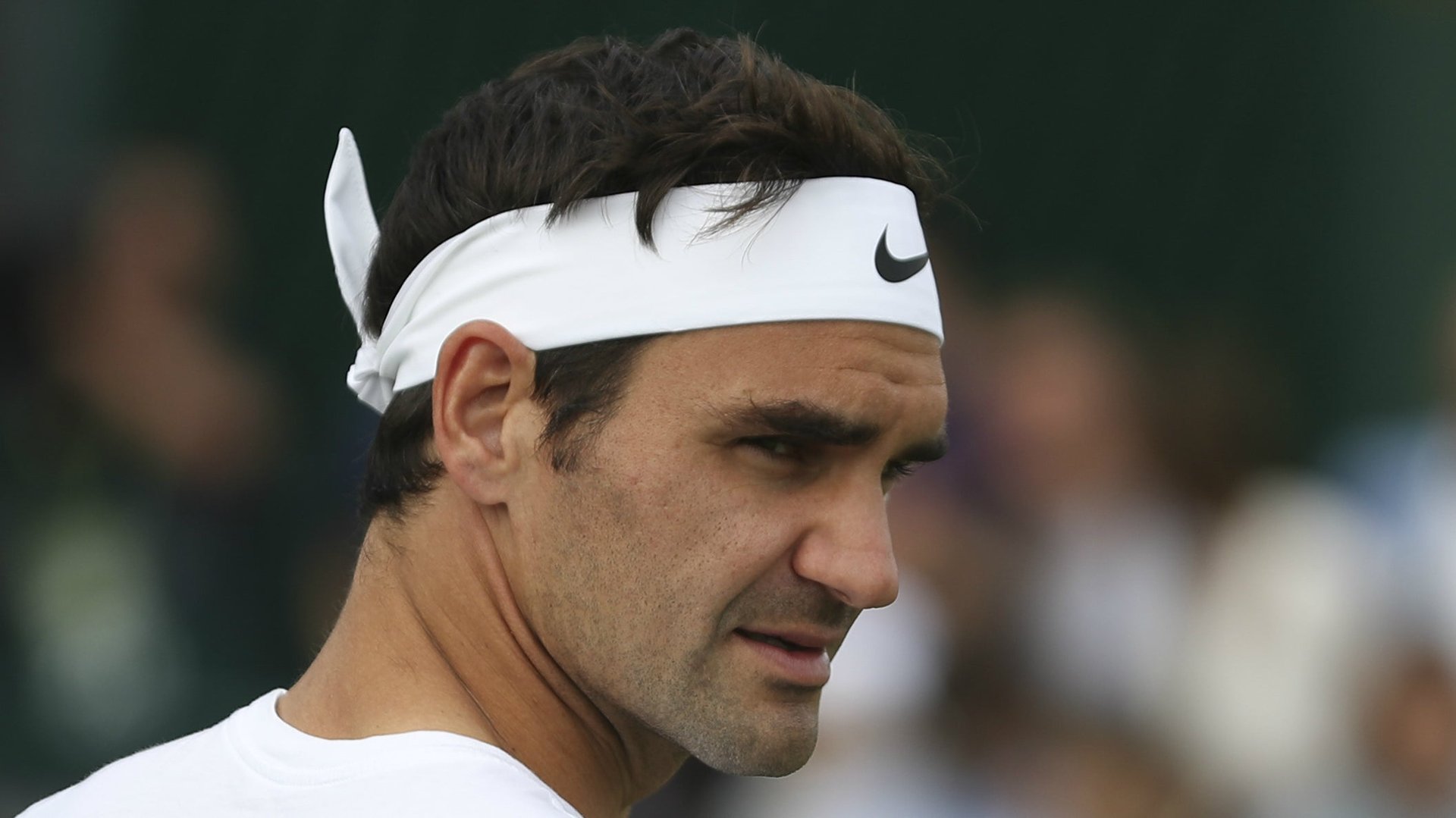This nice old man just broke the record for Wimbledon titles—and age
At more than 35 years and 11 months old, Roger Federer has led a pack of tennis geriatrics into Wimbledon history this year. After winning the tournament final on Sunday (July 16), he has become the oldest man to take the All-England crown in modern days.


At more than 35 years and 11 months old, Roger Federer has led a pack of tennis geriatrics into Wimbledon history this year. After winning the tournament final on Sunday (July 16), he has become the oldest man to take the All-England crown in modern days.
In fact, the last men standing in the men’s semi-finals had an average age of 31 years and 213 days, also a record. To put that in tennis years: whoa!
All of which proves that, as the Guardian notes, the old guys have still got game.
“I came through the juniors with all these guys,” Federer said last week. “It’s nice to see them still hanging on.”
After beating Croatian Marin Čilić (also pretty ancient, at 28), he’s not only the oldest man to win in the open era but the first to win eight singles titles at Wimbledon.
It’s a big victory for the mature world, especially after 37-year-old Venus Williams’ devastating loss in Saturday’s final to Spaniard Garbiñe Muguruza, who was born in 1993, the year Williams first played for money.
Speaking of money, increased earnings might be part of the reason players such as Federer can compete well into their ripe old 30s, notes the Guardian: “While in previous decades a tennis player might have travelled on their own or with a coach, prize money today is such that fitness advisers, nutritionists and physiotherapists can also come along for the ride.”
The winner receives £2.2 million ($2.8 million), which could cover quite a lot of physiotherapy.
What makes Roger Federer so great?
But let’s get back to Federer for a minute. He’s a really nice older fellow—the kind of person many of us hope to be one day: humble, graceful, and in possession of what appears to be a healthy marriage and an even healthier head of hair. He is also very good at tennis—a living tribute, some would say, of the sport’s “golden age,” when it was played with “elegance, deception and sporting artistry.” (When you’ve got tennis like that, who needs golf?)
The onetime German great Boris Becker has called the Swiss master “poetry in motion.” American Tracy Austin, a former women’s No. 1, once called Federer “a symphony in tennis whites,” producing “shots that should be declared illegal.” Even notable grump John McEnroe has said Federer is basically the platonic ideal of a player.
Becker has suggested that players today get better with age, and Federer’s performance after a six-month break last year may be a testament to that. Ahead of his latest victory, he had already won four of the six events he entered this season, an 18th Grand Slam title at the Australian Open—and every set he played during this year’s Wimbledon.
Federer will be 36 on Aug.8, 20 days before the US Open begins in New York. He’d be the oldest modern men’s champion there as well.